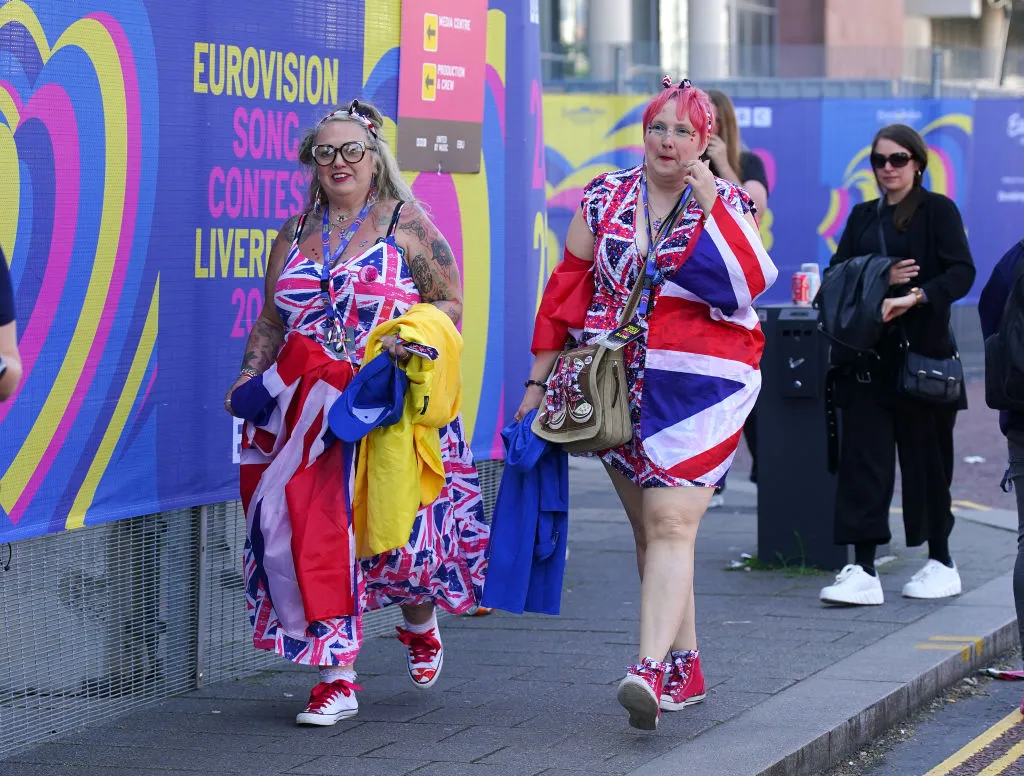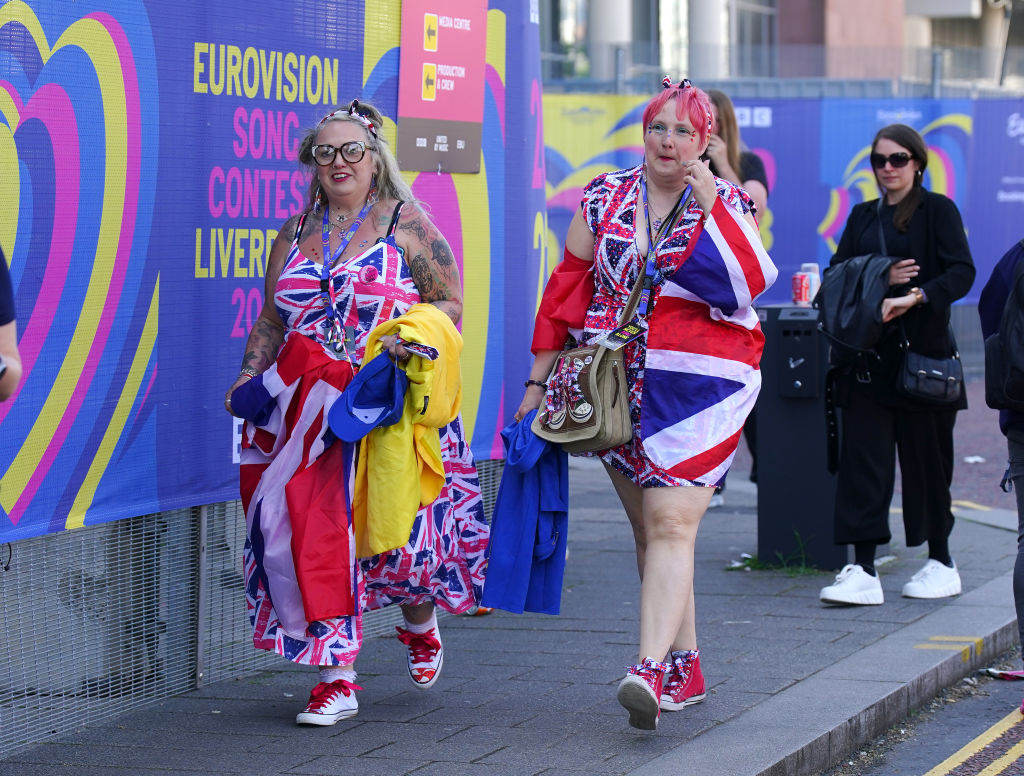Exclusive: Eurovision boost in Liverpool? Spending data shows a negligible impact on city centre businesses

Spending records seen by The Post show that bars, restaurants and shops saw a 3% increase in trade, blowing up claims of a massive economic boost to the city
Dear readers — welcome to today’s edition of The Post, which puts a rather different spin on the benefits of hosting Eurovision earlier this year.
We’ve seen comprehensive customer spending data — collated by a reputable company and not released to the public — which shows that city centre bars, restaurants and shops barely saw any uptick in trade in May. The data casts serious doubt on the council’s claims that Eurovision was a major fillip for the city’s economy.
Back in May, the council’s cabinet member Harry Doyle described how the bars, restaurants, hotels and independent businesses were “buzzing” and said that they were “all benefitting right now and that the echoing impact will be measured — it’s huge”. Indeed, the benefits to local businesses have been central to the council’s public messaging surrounding Eurovision. Labour leader Liam Robinson recently described how “local businesses were on the receiving end of a much-needed boost” from “the whirlwind that was Eurovision”.
A report in May in the business publication Liverpool Business News quoted a NatWest forecast claiming that city centre businesses might benefit to the tune of an incredible £200 million. And Aileen Jones, the city region’s Executive Director for Investment and Delivery said that the festival had seen “a huge boost to our visitor economy”.
But amid the hype, it seems no one has actually checked whether city centre businesses did actually benefit. We’ve been trying to get that data for months now, and finally today we can reveal what the numbers show. We’ve also spoken to some of the business involved, whose accounts of what happened in May back up the story being told by the data, including one venue whose Eurovision night attracted just a handful of revellers. Lots of footfall was promised, they told us, but “That just didn’t really happen.”
None of this, of course, takes away from the excitement that thousands of people in the city felt about hosting Eurovision, or the branding benefits it gave to our city around the world. But it does suggest that one of the biggest arguments for hosting the event just didn’t materialise at all.
As always, this edition is a members’ edition of The Post, although our regular readers can read the top of the story. We can only do story that requires digging and getting hold of information like this if we have a strong subscriber base, and everything we’ve done to date has been funded by our 1,300 paying members. If you’re not yet a member and you would like to read this story and support our work, please join up today.
Partner with The Post? For those of you who missed our announcement earlier this week, we’re offering local businesses a chance to partner with The Post via corporate subscriptions, sponsorships and events. If you lead — or work in — one of these organisations, we’d love you to think about working with us.
To find out more head to our previous post here, or email daniel@millmediaco.uk for an introductory chat.
Your Post briefing
Liverpool has a “Bonfire Night problem”, wrote councillor Laura Roberston-Collins in a statement this week. The cabinet member for neighbourhoods said the city has long had a problem with illegal bonfires, citing a new Merseyside Police strategy — Operation Banger — launched to help take down bonfires that “pose a threat to life”. Her statement comes after the council’s bonfire clear-up crews were forced to leave areas because of threatening behaviour from members of the public, with six incidents taking place in Speke and Everton in recent weeks. This is not about being anti-fun,” wrote Roberston-Collins. “This is about being safe.”
Commuters have complained of “horrendous service” at the new Headbolt Lane train station in Kirkby, just weeks after it opened. The £80 million site was unveiled in October, and is the first station to be served by Merseyrail’s new battery operated trains. Yet commuters have already started raising concerns about frequent train faults and cancellations, with one passenger telling the Echo the trains are “breaking down constantly”, and are often cancelled at the last minute. Merseyrail has since said they are working through a “transition phase”, with teething problems to be expected with the new service for a while longer.
Liverpool’s Royal Court theatre has issued a plea for donations to give children a chance to learn a new instrument. The month-long amnesty for musical instruments will allow the theatre to continue their free workshops for young people, providing training for a career in the arts and teaching them about music, acting and writing. "Being able to play an instrument adds another string to your creative bow,” Miriam Mussa, the head of theatre engagement, said. “It puts you on a level playing with those who have had every opportunity to learn as much as they can for a life in the theatre and the arts."
Exclusive: Data shows Eurovision had a negligible impact on city centre businesses
Abi Whistance and Jack Walton
Bars, restaurants and shops across Liverpool saw next to no net impact in business during Eurovision, The Post can reveal.
We have seen previously unreported spending data for May this year that shows venues in the city centre saw a meagre 3% rise in customer numbers compared to May 2022. The data, which covers all offline credit and debit card sales, also reveals that the same venues saw a negligible 5% increase in sales comparative to May 2022.

The new data, passed anonymously to The Post, will come as a huge surprise to many, even the council, who don’t seem to have been aware of it until we contacted them this week. A council spokesperson told us:
‘The economic dividend generated by Eurovision 2023 has been independently and robustly evaluated by leading academics and economists. These sector experts are extremely experienced at evaluating national events and are well versed in measuring other positive impacts such as health and wellbeing. The reports in full can be read here.”
Last week the council heralded a report produced with the University of Liverpool claiming that hosting Eurovision provided a £54 million boost to the city region. They cited data — drawing on figures published by Liverpool Business Improvement District Company — showing a 13.2% increase in city centre footfall compared to the same period a year prior.
The website Liverpool Business News reported that “much of the £54m will have been spent on hotels, bars, restaurants and transport”. But now we know that only tells half the story. The obvious question then, is what does the council’s £54 million statistic refer to, if not the bars, shops and restaurants of the city centre?

Latest
‘Cutthroats and sell outs’: An editor’s note about Laurence Westgaph’s threats
Ian Byrne: Why the country — not just Liverpool — needs the Hillsborough Law
The ‘charisma bypass’: Why Liverpool’s leaders are so forgettable
The Mersey’s clean-up cost £8 billion. So why is it still so dirty?
Exclusive: Eurovision boost in Liverpool? Spending data shows a negligible impact on city centre businesses
Spending records seen by The Post show that bars, restaurants and shops saw a 3% increase in trade, blowing up claims of a massive economic boost to the city